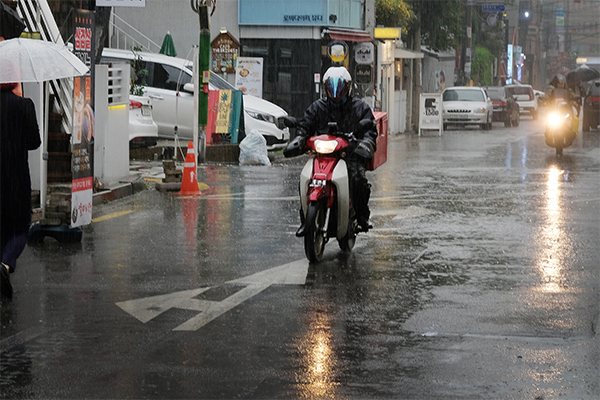
Shim Tae-ho(not real name), a grade 11 high school student from the poor family, worked part-time for food delivery service to help the family, after school. The workplace that he worked for was not a restaurant, but a food delivery service agency which receives delivery orders from subscribed restaurants to mobile delivery apps and makes calls to the delivery men for the service.
Shim had to run his motorbike as fast as he could to earn money. Working hours and the place to work was not fixed. The food delivery service agency gave an assignment of delivery to the person who arrived the earliest, upon receiving the call for a delivery order on the apps. This is what is called 'the battle call marshalling of motorbikes'. Delivery men risked their lives to earn the delivery charge of 2,500 won(US$2.30) to 4,500 won(US$4.20) per delivery service.
Nov. 26, 2013, Shim was running the motorbike owned by his older brother fast as usual. And then, he had a collision with a jaywalker nearby Gunja subway station in Seoul, when he was on the way for the food delivery service. He was diagnosed with the occulusive fracture of thoracic vertebrae and the damage of pleural effusion fluid which caused him to have been paralyzed from the waist down.
The Korea Workers' Compensation and Welfare Service(KCOMWEL) approved the case of Shim's accident as an industrial accident and made a compensation for him. However, the food delivery service agency which hired Shim reacted against the decision, citing the reasons that it did not have any employment contract with him and the delivery service charges were even paid by the restaurants. It insisted that the agency is therefore not obliged to pay the industrial accident compensation insurance for Shim.
The food delivery service agency filed a lawsuit against the KCOMWEL, complaining that "the levy of the industrial accident compensation insurance is unreasonable." The first trial and second trial were ended in favor of the agency, for the courts perceived that Shim was an independent contractor and therefore he is not eligible for the industrial accident compensation. The decisions of lower courts pushed Shim in danger of paying back all the benefits he had received including the medical expenses.
According to the Supreme Court, on Apr. 26. it made a final verdict on the case in favor of Shim after the accident happened 4 years and 6 months ago. The Supreme Court ruled that "what the lower courts decided that the food delivery service does not fall under the special types of employment is a misunderstanding on the principle of law." The Supreme Court sent back the case to the Seoul High Court. The decision of the Supreme Court recognized the food delivery service workers as the workers of the special types of employment like other delivery service workers who are partially covered by the industrial accident compensation insurance.
reported by Kim Mi-young
translated by Kim Sung-jin

